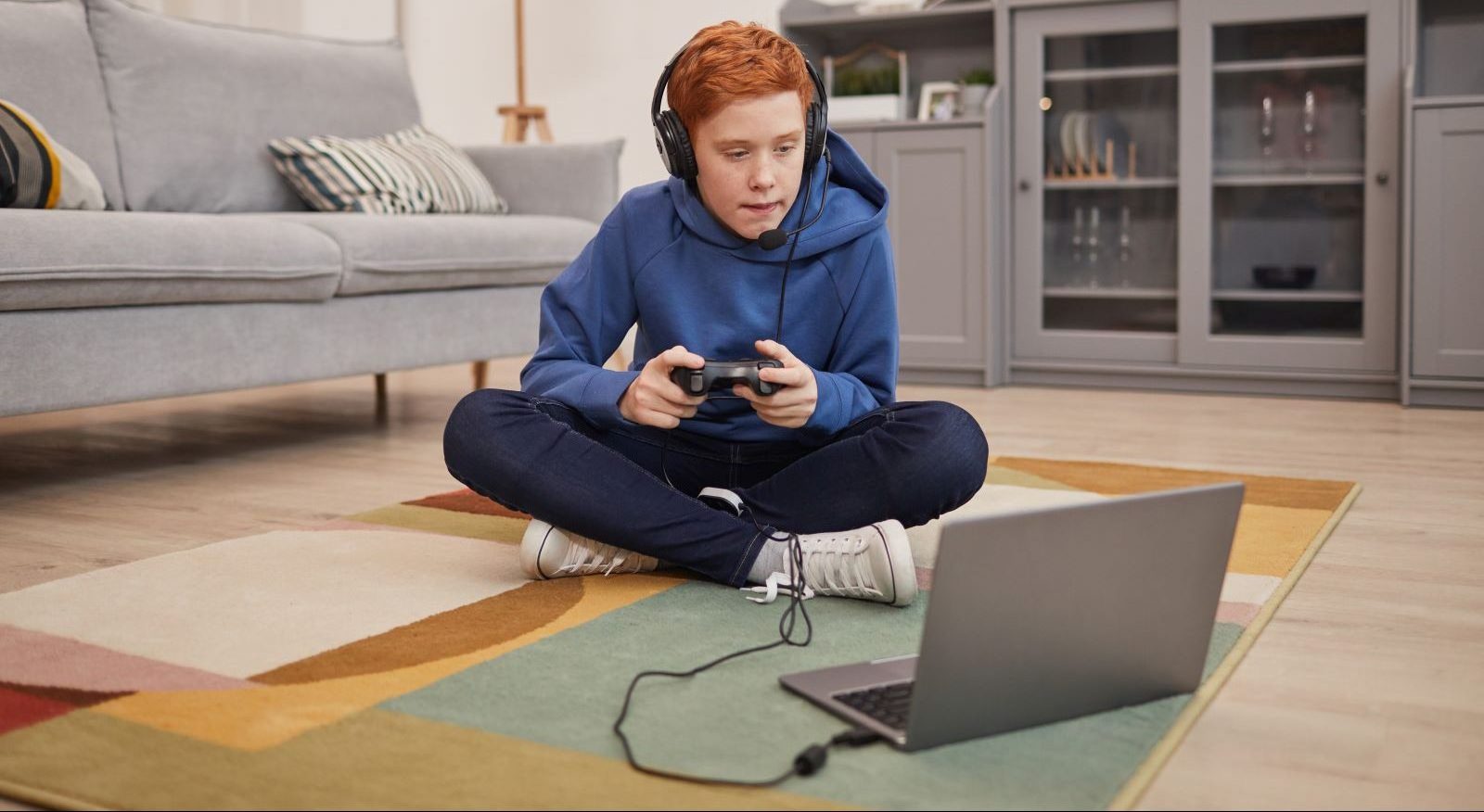<< Back
Video Gaming Pros and Cons – What Parents Need to Know

June 29, 2022
Video gaming, internet use and related activities can all have an adverse impact on adolescent boys, and parents should be on the lookout for signs of such impacts, says Paul Weigle, MD, assistant medical director at Natchaug Hospital, part of Hartford HealthCare’s Behavioral Health Network, who recently presented on this topic at the American Psychiatric Association Annual Conference.
Video games have been around for decades, but have become prolific in recent years – particularly for teenage boys, who have seen a four-fold increase in time spent gaming between 2000 and 2019. The pandemic exacerbated this, and doubled the average screen time from previous years.
“For most children gaming can be a positive and enjoyable experience, but the increasing screen time we are seeing does have both pluses and minuses,” says Dr. Weigle, a national expert on the impact of screen time on children and teens.
One concern is that violent games can desensitize children to violence and lead to aggressive thoughts and behaviors, but Dr. Weigle clarified that only a small minority of gamers are incited to commit violence themselves. These children require more intensive counseling and assistance including family therapy sessions. A more common issue is video game addiction, which can lead to anxiety, depression and social challenges.
Gaming might be a concern if your child:
- Isolates themselves.
- Ignores their homework.
- Skips sleep.
- Plays excessively.
- Shows signs of exhaustion.
- Withdraws from their friends or family.
- Exhibits changes in mental health.
Dr. Weigle emphasized that gaming is not always bad, as some studies have shown a decrease in risky behaviors among teens since the rise of gaming. Adolescents have also been physically safer and less likely to be perpetrators or victims of violent crime in recent years.
“When gaming, kids experience the enjoyment of being fully immersed in an activity that commands their full attention and offers them complete control. This is important during adolescence as youth feel a strong need to feel effective in dealing with their environment,” said Dr. Weigle.
Some steps that parents can take to ensure that their children are gaming safely include:
- Limiting gaming. Allow children to reconnect to other outlets, hobbies and peers, and avoid excessive gaming by requiring children to participate in family dinner and shut devices off when it is time to sleep. Note that confiscating video games is an option that should be avoided, as this can be perceived as threatening or upsetting and might lead to a negative reaction.
- Initiating family discussions. Be curious, rather than judgmental, and use this tool to learn more about the games that your children are playing – even consider giving them a try.
- Maintaining a predictable schedule. By allowing gaming to be a part of family or social activities, parents can stay in control of the situation. This is especially important in summer months when kids have more free time and may be tempted to play video games excessively. “A plan that prioritizes structure for kids is invaluable. Established routine is a powerful thing,” said Dr. Weigle.
“We know that youth video game engagement is increasing and is habit-forming by design, but good parental monitoring using positive interactions can prevent gaming-related mental health problems,” said Dr. Weigle.